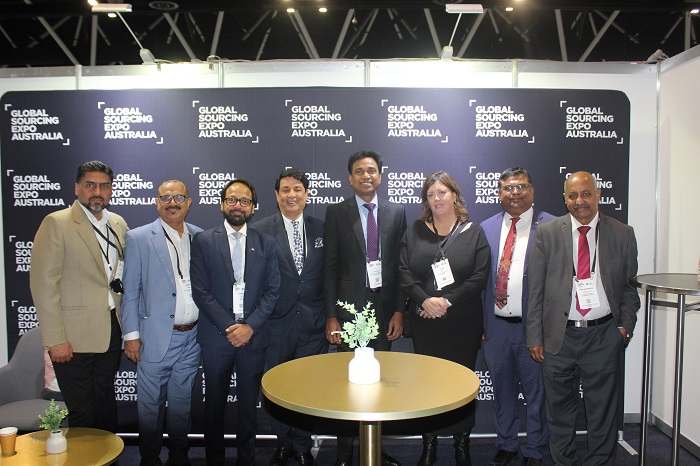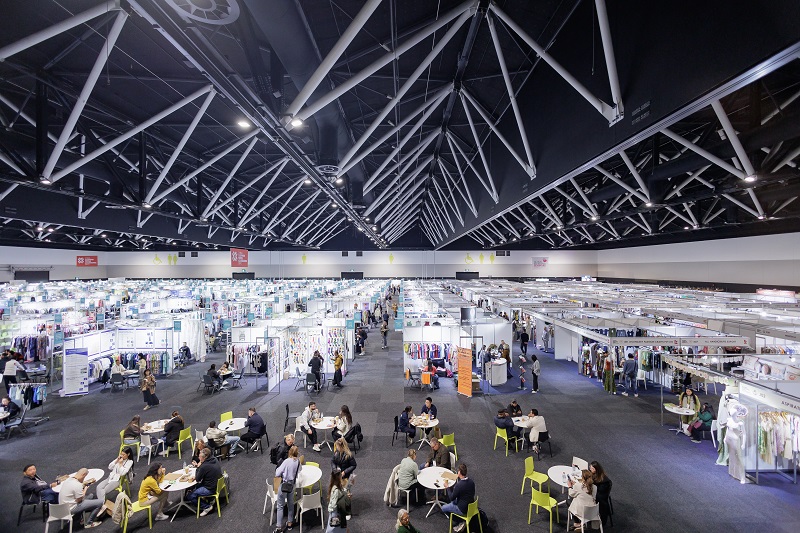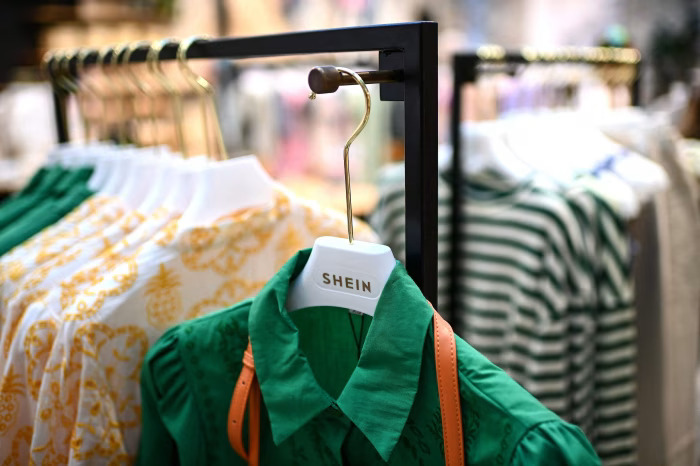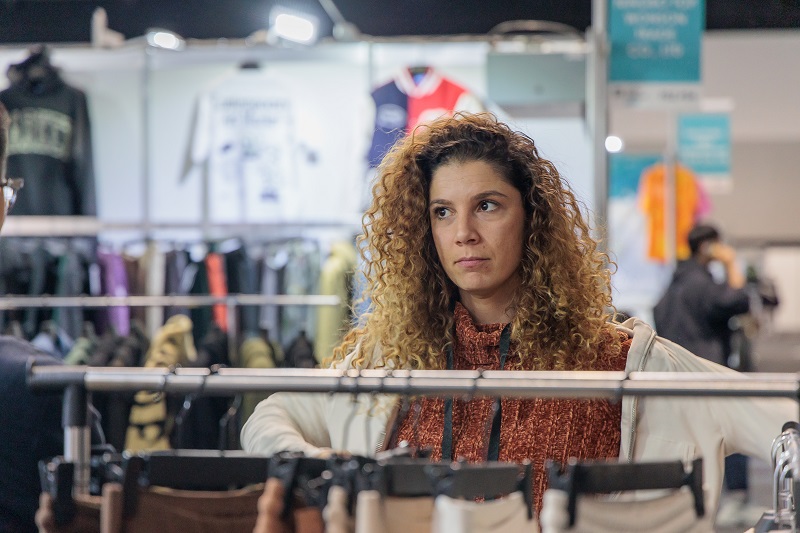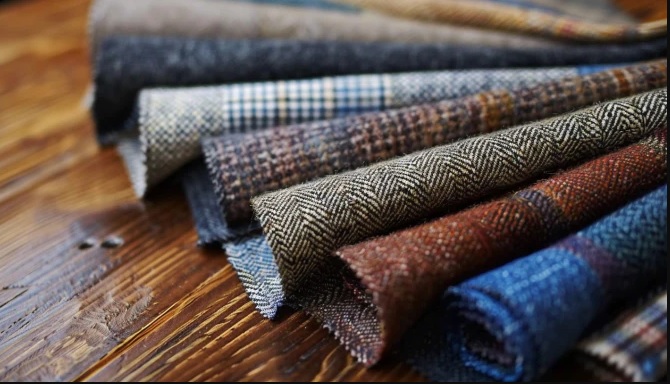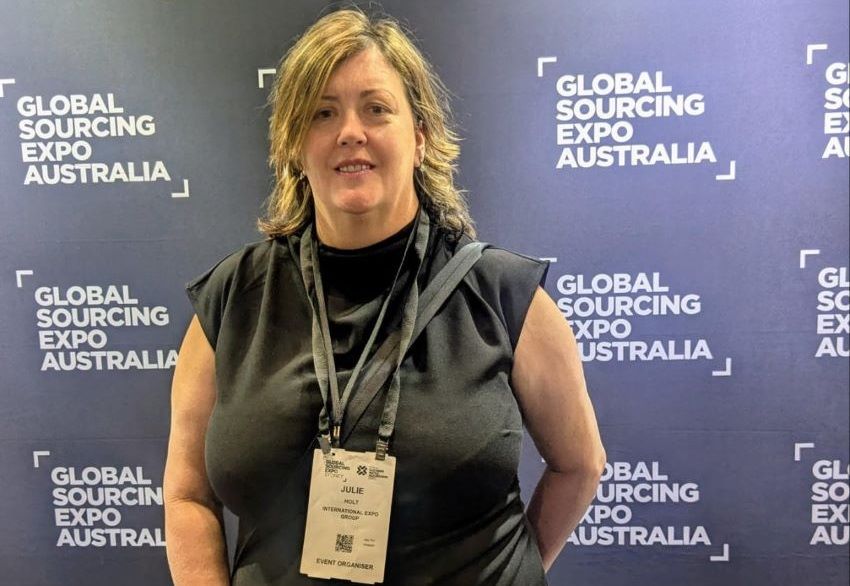FW
Bangladesh’s garment shipment to the US grew only 3.41 per cent in the first quarter of the fiscal year. The US is Bangladesh’s single largest export destination. With the emergence of India, Bangladesh is now the sixth biggest apparel exporter to the US, down from fourth spot even a few months ago.
India’s garment sector is fast becoming a formidable opponent for Bangladesh on the global stage. After India gave a stimulus package for its garment sector and devalued its currency, the prices of apparel items of both Bangladesh and India are almost equal, although labor cost in India is higher than in Bangladesh. Many retailers have started sourcing garments in high volumes from India.
Bangladeshi exporters are handicapped by infrastructural challenges, due to which goods cannot be delivered to retailers on time. Apart from India, other countries like Vietnam, Pakistan and even Mexico are gaining ground in the market. Vietnam has been performing well in the US as many American companies invested in the Southeast Asian country after it was included in the Trans-Pacific Partnership free trade pact. The US has withdrawn from the pact but US investors have remained in Vietnam. Exports from Bangladesh have to face 15.62 per cent duty for entry to the US.
The upcoming 2016 edition of Irantex, to be held in Tehran from September 3 to 6 will feature a significant contingent of Italian textile machinery manufacturers. Nearly, 25 Italian companies will be exhibiting at the Italian Pavilion, the common area set up by the Italian Trade Agency and Association of Italian Textile Machinery Manufacturers (ACIMIT). The companies associated with ACIMIT to exhibit at the Pavilion are: Beta Machinery, Bianco, Bonino, Caipo, Cogne, Carù, Durst, Fadis, Ferraro, Fk Group, Itema, Jk Group-J Teck 3, Laip, Marzoli, Ramallumin, Rf Systems, Santex Group, Smit, Srs, Ssm Giudici, Stalam, Tessilgomma and Zonco.
International sanctions of the past years had delayed modernisation of the Iranian industry in 2004, Iran was ranked among the top 10 markets for Italian exports in the sector. After years of stagnation, Italian sales to Iran registered a recovery. In the first quarter of this year, Italian sales to Iran totalled €2 million, while 2015 sales were worth €8 million. Iranian demand is spread out over all types of production but Italian finishing and spinning machines are the primary exports.
Nearly 27 Italian companies participated in a roadshow and a series of technological workshops in Tehran, Yazd, Isfahan and Mashad. They held meetings with textile authorities and visited local companies. The next edition of Irantex, will give local companies an opportunity to get a close look at the excellence of Italian technology.
The European Union wants Cambodia to improve its human rights record. There are demands within the EU that aid to Cambodia should be withheld if matters don’t improve. Cambodian exports to the EU are duty free. Last year the EU bought about $3.83 billion of garments and footwear from Cambodia. Over the years, EU-Cambodia cooperation activities have touched the lives of millions of Cambodians. The EU is Cambodia’s largest partner in terms of development assistance. The three sectors in the focus of the EU’s development cooperation are agriculture and natural resource management, education and skills and good governance and administration.
However, Cambodia doesn’t mind forgoing aid from the EU and is instead turning towards China, which makes no such demands. China is also Cambodia’s biggest aid partner. China invested nearly $5 billion in Cambodia from 2011 to 2015. It’s the main source of loans for infrastructure in Cambodia. China has also beefed up the nation’s military capabilities, both with hardware and training. Cambodia has been sold helicopters, shoulder-fired anti-aircraft rockets, and even given loans for the purchases. In all, Chinese investments and loans have helped Cambodia’s rulers stay in power.
The biannual fair for denim ‘Denim Premiere Vision’ will be held in Barcelona, Spain, from November 16 to 17, 2016. The fair sees international manufacturer’s present latest fabrics, colors and trends of the coming season. The event showcases accessories, fabrics, laundry, promotions products and more in the lifestyle and fashion industry. Denim Première Vision brings together all the trades in the denim industry. From weavers and tailors to fiber-makers and accessory-manufacturers, companies from all over the world will be at the show to showcase their expertise.
This is the first trade show devoted exclusively to denim fabric. Denim Première Vision is the leading international event for every professional involved in the denim industry. Every season, the teams from Première Vision come up with bold, original ideas to showcase the latest products and services.
The last edition of Barcelona, Denim Première Vision brought together 3,803 visitors, eight per cent less than in the previous edition. However this decline in the number of visitors was because companies came with smaller teams. The fair gathered 95 exhibitors, half of them weavers. However, the fair continues to be a meeting point for key players in the sector, especially in Europe and the United States.
A pioneering group of forward-thinking farmers have given a boost to organic cotton production in Texas since the early 1990s. It now covers over 20,000 acres thus turning the Texas High Plains the largest organic cotton-growing region in the United States. In recognition of the group's hardwork, farmers of the Texas Organic Cotton Marketing Cooperative (TOCMC) will receive the prestigious Organic Farmer of the Year Leadership Award from the Organic Trade Association (OTA). They will be given the award as one of the leadership awards presented at the Organic Trade Association's Annual Awards Celebration on September 21 in the kickoff event for Natural Products Expo East.
It may be noted that in 1993, Texas farmers formed a cooperative when they realised they were producing more organic cotton than the market could absorb. Bonding together, they began efforts to develop markets and to avoid being at the mercy of cotton brokers and merchants. Many of these early pioneers still are involved in promoting organic farming and educating the public about organic practices.
The cooperative began with 30 farm families producing 1,400 organic bales and 4,900 transitional bales from about 5,000 acres in 1993. In 2015, its 50 farm family members harvested 14,000 organic bales and 1,200 transitional bales on over 20,000 acres. They produce 80 to 90 per cent of the organic cotton grown in the United States.
Malaysia will strengthen trade ties with India. Malaysia and India established the Malaysia-India Comprehensive Economic Cooperation Agreement in 2010. This is a comprehensive agreement that covers trade in goods, trade in services, investments and movement of natural persons. It value-adds to the benefits shared from the Asean-India Trade in Goods Agreement and will further facilitate and enhance two-way trade, services, investment and economic relations in general.
The two countries recognize each other’s responsibility in the promotion of peace, development and security of the Asia-Pacific region, and beyond, based on a convergence of political and socio-economic interests and aspirations.
Malaysian investments to India have continued to grow and so has Indian investments to Malaysia. Indian investments in Malaysia have created jobs in various sectors including printing and publishing, textile and textile products, petroleum products, electrical and electronic sectors. There are over 150 Indian companies in Malaysia and 170 flights between the two countries with 125 flights from South India alone. About 30,000 people fly every week between the two countries and about 1.56 million people annually either through direct flights or connecting flights. In 2015, India was Malaysia’s tenth largest trading partner and 12th biggest importer.
"The recent decision by the Madras High Court upholding government’s rights to fix minimum wages for garment workers, has not gone down well among manufacturers and stake holders. The industry feels the government’s decision is not pragmatic and will render garment exporters in the State uncompetitive. In fact, Tamil Nadu’s garment exports sector which should have been growing at 30 per cent, is now limping at 2-3 per cent growth due to huge tariff disadvantage."
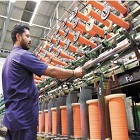
The recent decision by the Madras High Court upholding government’s rights to fix minimum wages for garment workers, has not gone down well among manufacturers and stake holders. The industry feels the government’s decision is not pragmatic and will render garment exporters in the State uncompetitive. In fact, Tamil Nadu’s garment exports sector which should have been growing at 30 per cent, is now limping at 2-3 per cent growth due to huge tariff disadvantage. Recently, a division bench of the Madras High Court upheld the Tamil Nadu government’s writ appeal and dismissed petitions filed by garment manufacturers to quash revision in minimum wages for tailoring industry. The government’s final notification for minimum wage revision (30 per cent) in the tailoring industry was issued on December 3, 2014.
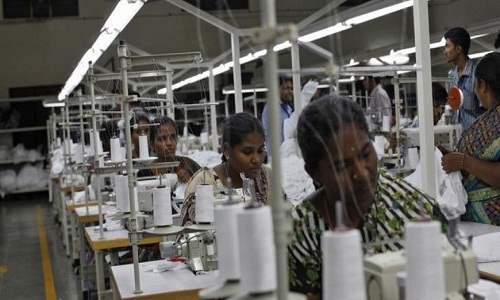
For knitted garments, the minimum wage was fixed at Rs 9,000-plus, while for the woven garment industry, it was Rs 11,000-plus. Manikam Ramaswami, Chairman & Managing Director of Loyal Textile Mills, believes it is ridiculous to have different minimum wage structures. Tailoring work is the same whether it is knitted or woven garment. Whether it is knitted or woven or home textile – all the three are doing identical operations to identical customers. One is using the woven cloth to make a garment; another is using a woven cloth to make a bed sheet. He feels, the illogical and high wage revision will jolt the industry, which has been facing challenges in boosting exports.
Tariff impact
Manufacturers say state’s garment exports sector growth has slowed down due to huge tariff disadvantage. On top of that, if high wages, which is 20 per cent of the cost of garment making, are imposed it will have a significant impact. Garment makers argue the hike it should be reasonable and in line with the rest of the country. Tamil Nadu cannot be paying 20 per cent more than Andhra Pradesh, Ramaswami observed. He also stated that such different wage structures would only convey wrong signals to investors. Meanwhile, K Venkatachalam, Chief Advisor, Tamil Nadu Spinning Mills Association, points out the garment industry misunderstood the notifications and failed to clarify. Under the 2014 government revision, wages were hiked to a high level and companies felt it would be too much for them to implement. Hence, many companies challenged the order in the Madras High Court on the ground that the rates of wages are very steep and such increases would make them uncompetitive.
However, the wage revision was only for employment in the tailoring industry. Hence, on the request of some companies, separate writ petitions challenging the order saying it is not applicable to hosiery/knitting industries and for home textile industry was put in. Accordingly, the government released two orders in January 2016 fixing the minimum wages for hosiery and knitting industries separately, Venkatachalam pointed out.
The writ petition challenging the applicability of impugned order for home textiles stands separated from the main batch and accordingly, it is still alive and the stay is continuing. Hence, those engaged in manufacturing hosiery/knitted garments are advised not to bother about the High Court order upholding the government order as they are covered by separate orders, he concluded.
The apparel division of Siyaram Silk Mills, India’s leading textile manufacturing company recently organised an All India Retailer Meet 2016 at Sahara Star, Mumbai. The event was primarily hosted to facilitate Siyaram’s family bond by gathering their channel partners and providing them a refreshing break from their routine activities.
The meet saw the participation of around 1,000 dealers and channel partners of Oxemberg and J. Hampstead apparel brands. The participants were delighted to see the Spring/Summer 2017 Collection. Club wear collection for Oxemberg was also launched at the meet and was the star attraction of the night. The scintillating collection of Club wear fashion shirts is a range designed by creatively talented designers by exploring trends from around the world. Fine fabrics, trendsetting designs and a slim structured fit make this collection a complete rock star. The shirts are adorned with stylish, hand-picked buttons, crisp cuffs & broad collars. These fabulous pieces are available in popular designs like Dobby, Jacqured, Poplin & Chambray.
Siyaram's chairman and managing director, Ramesh Poddar said the meet had given them a platform to appreciate all their dealers and channel partners who played a valuable role in the overall growth of the company. It was through their efforts that the Mills’ brands have been able to enhance their presence across the country.
In order to boost trade exchanges between the two countries and explore possibilities of partnership in various sectors such as textile, infrastructure, energy, information technology, construction, agriculture, chemicals and fertilizers, mining, and automotive, an Indian business delegation is expected to visit Morocco next week. This visit comes one month after Morocco and India set up a joint trade and industry chamber to give new impetus to cooperation between the two countries.
The chamber was launched during the visit of Indian vice president Mohammad Hamid Ansari in the presence of the Head of the Moroccan Government Abdelillah Benkirane and businessmen from the two countries. Recalling the longstanding and strong ties between the two countries, Benkirane said Morocco was committed to developing relations with India in all fields. Ansari stressed on the importance of newly created trade chamber set to enhance cooperation and partnership between Moroccan and Indian businessmen. He also hailed trade growth between Morocco and India during the last few years and stressed the huge potential of the economies of the two countries that banked on common history.
Exports from the North African country to India includes metallic ores and metal scrap, semi-finished products and inorganic chemicals, while its imports from India include cotton yarn, synthetic fiber, transport equipment, pharmaceuticals, agricultural implements, chemicals, spices and manufactured metals. Morocco is one of the world’s top producers and exporters of fertilizers thanks to its phosphates and India is one of the major markets for Moroccan phosphate and its derivatives.
In a significant development due to the Bangladesh factories’ failure in making required progress in remediation work, ‘The Alliance for Bangladesh Worker Safety,’ a North American buyers’ group, has cut ties with five out of the 11 factories as the firm authorities failed to provide evidences of remediation work at their units and did not submit design documents to the platform.
These factories are: Anzir Apparels at Savar in Dhaka, Beautiful Jackets in Manikganj, Fashion Store and ZSB Garments in Gazipur and Ambia Apparels in Chittagong.‘The Accord on Fire and Building Safety,’ a platform of EU brands and buyers, has terminated World Victory Garments, Ags Apparels, SN Sweater Co, Safwan Fashions and Wintex Fashion Wear in Dhaka and Fabin Apparels in Narayanganj from its suppliers’ list due to the factories’ failure in implementing workplace safety measures.
With the 11, the total number of RMG factories with which global buyers cut business relations in different times on workplace safety ground reached 137. Of them, the Alliance has cut business ties with 88 factories while the Accord with 49 units. The Accord said they provided corrective action plans to the factories to eliminate safety hazards which were identified during the initial inspections but the factory authorities failed to make adequate CAP implementation progress.
Meanwhile, the Alliance said that the factories had been suspended from its compliant factory list because of their lack of progress in one or more programs, thereby failing to make progress in ensuring a safe working environment.


